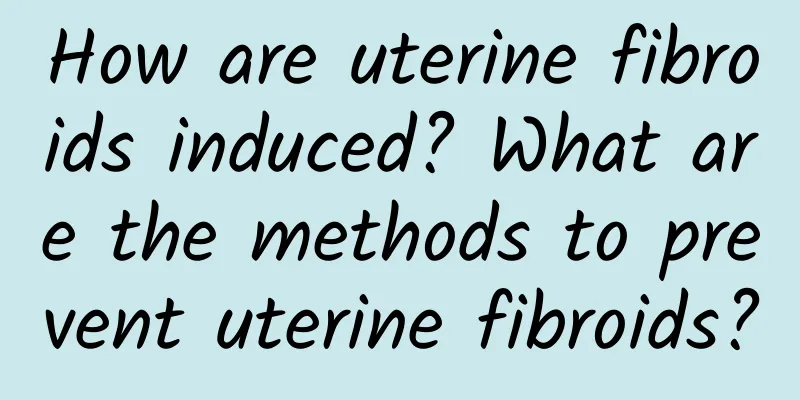Causes of amenorrhea after postpartum hemorrhage

|
The main reason for postpartum hemorrhage leading to amenorrhea is hypopituitarism caused by excessive blood loss, which can develop into Sheehan syndrome in severe cases. Treatment methods include hormone replacement, nutritional support and psychological intervention. 1. Causes of amenorrhea caused by postpartum hemorrhage Postpartum hemorrhage is one of the common causes of amenorrhea, which is mainly related to impaired pituitary function. Excessive blood loss can lead to ischemic necrosis of the anterior pituitary gland, affecting the secretion of gonadotropin, which in turn leads to ovarian dysfunction and amenorrhea. In severe cases, it may develop into Sheehan syndrome, manifested by symptoms such as hypofunction of the thyroid and adrenal cortex. Genetic factors, malnutrition, infection, etc. may also aggravate the condition. 2. Treatment of postpartum hemorrhage and amenorrhea Treatment of amenorrhea caused by postpartum hemorrhage requires multiple approaches. Hormone replacement therapy is the main method, including estrogen and progesterone supplementation to restore the menstrual cycle. Nutritional support is also crucial. It is recommended to consume foods rich in iron and protein, such as lean meat, eggs, spinach, etc., and iron and vitamin supplements can be used when necessary. Psychological intervention should not be ignored, and anxiety can be relieved through psychological counseling or support groups. 3. Prevention and daily management Preventing postpartum hemorrhage is the key to avoiding amenorrhea. Regular checkups should be conducted during pregnancy to promptly detect and treat high-risk factors, such as anemia and placental abnormalities. After delivery, pay attention to rest, avoid overwork, and maintain emotional stability. Eat more foods rich in iron and vitamins, such as red dates, pork liver, and green leafy vegetables. Appropriate light exercise, such as walking and yoga, can help promote blood circulation and physical recovery. Amenorrhea caused by postpartum hemorrhage requires prompt medical attention, and targeted treatment should be taken after the cause is identified. Through hormone replacement, nutritional support and psychological intervention, most patients can gradually restore menstrual function. Preventive measures include pregnancy management, a proper diet and moderate exercise, which can help reduce the risk. |
<<: Symptoms and treatments of amenorrhea Causes of amenorrhea
>>: Does an ectopic pregnancy implant on the ovary require surgery?
Recommend
Can Cassia Seed Tea Relieve Constipation and Help Lose Weight? 4 types of people should not use it indiscriminately! Chinese medicine doctor Kang Hanjing: Doing this will double the effect
Cassia seed is a very common Chinese medicine in ...
Women need to know the dangers of pelvic inflammatory disease
Many women may have only a vague understanding of...
6 daily health care methods for pelvic effusion How to treat pelvic effusion
6 daily health care methods for pelvic effusion H...
Will green dregs of vaginal discharge heal itself? Is it vaginal candidal infection?
Green dregs of vaginal discharge will not heal on...
Can I have a child if I have an ovarian cyst? What are the symptoms?
Can I have a baby with an ovarian cyst? What are ...
Simple face-lift secrets to save difficult face-lifts
Ladies who want to slim down their faces, look he...
Can hyperprolactinemia be treated?
If you suffer from hyperprolactinemia, this disea...
Fruit calorie bomb! 1 durian 3,000 calories
Fruits are rich in vitamin C and contain a variet...
What are the treatments for cervicitis in women? 4 folk remedies for cervicitis you can try
The first thing that causes cervicitis is that th...
What are the harms of abortion? There are 5 major harms
There are many harmful effects of miscarriage, th...
Symptoms of vaginitis
Vaginitis is an inflammation of the vaginal mucos...
You can lose weight without fasting, these 5 must-drink slimming soups are delicious, filling and help burn fat!
The Chinese New Year is coming soon, and there wi...
Do I need surgery for an ectopic pregnancy that lasts more than a month?
Ectopic pregnancy generally refers to ectopic pre...
Can I do eye suture implantation during menstruation?
It is not recommended to perform eye suture surge...
What should we pay attention to after abortion?
After undergoing abortion, patients need to pay a...









